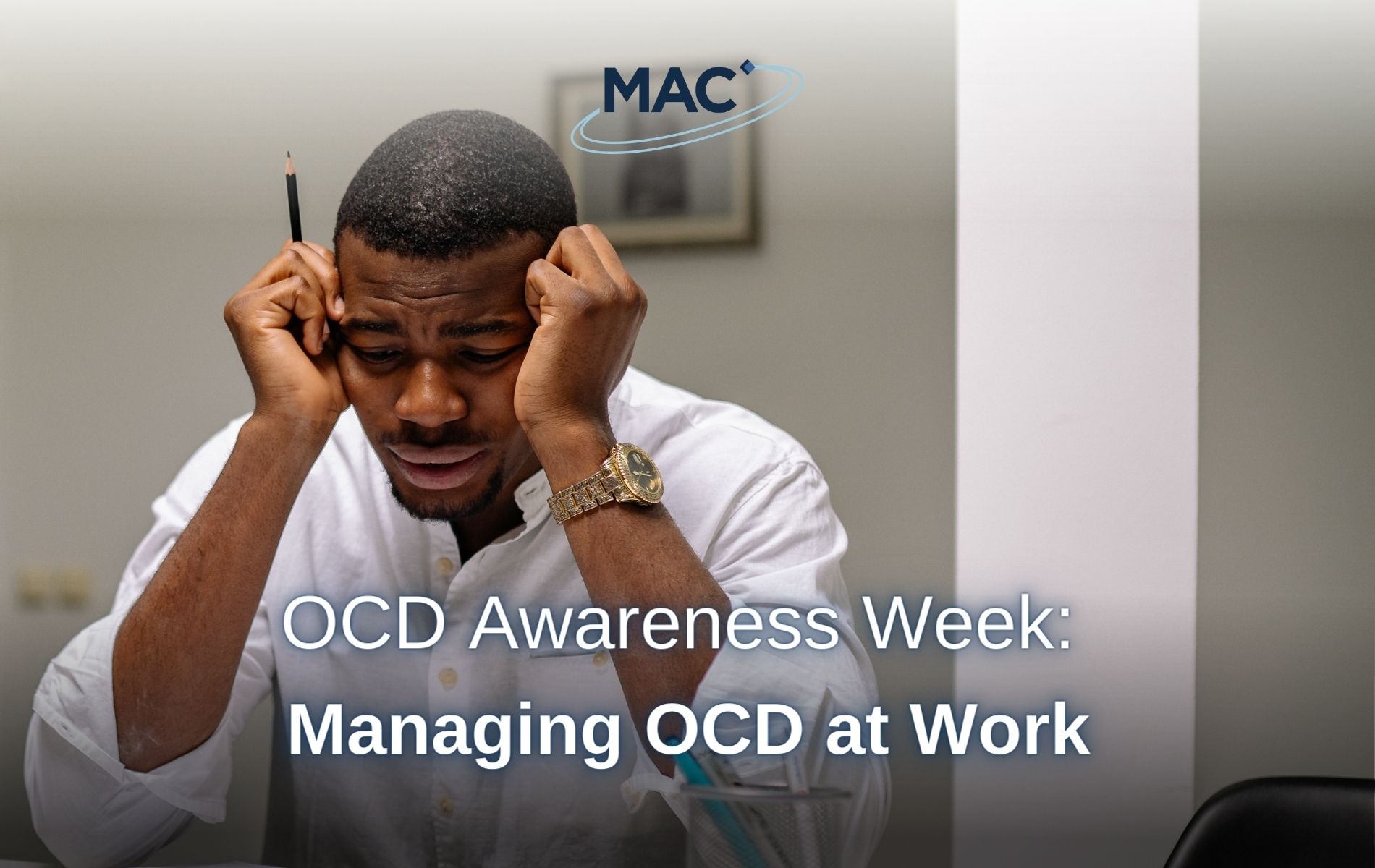This week we’re recognising OCD Awareness Week and the issues that surround living with the condition. The awareness week is organised each year by the International OCD Foundation and this year, the organisation is “shining a light on the unvarnished truth of what it means to have OCD”.
Obsessive Compulsive Disorder (OCD) is a mental health condition characterised by intrusive, distressing thoughts (obsessions) and repetitive behaviours or mental acts (compulsions) aimed at reducing the anxiety caused by these obsessions.
An estimated three-quarters of a million people are living with and affected by OCD in the UK1.
The condition impacts almost every aspect of a person’s life, one of these aspects is an individual’s working life.
Research conducted with people living with OCD found that 72% of respondents were more likely to be unemployed on a long-term basis, compared to those without the condition2.
Due to pervasive, disruptive and intrusive thoughts, individuals living with OCD may have difficulty concentrating and being able to focus, making it challenging to complete tasks efficiently. Trouble concentrating can cause further problems as the fear of making mistakes or overlooking details due to intrusive thoughts can be particularly distressing in work settings that require precision and focus.
The rituals and compulsions associated with the condition can also impact their career due to their time-consuming nature. These rituals may include excessive hand washing, checking, or arranging items in a specific way, mentally counting, saying ‘lucky’ phrases silently, or mentally reviewing and analysing conversations or past actions. Spending time on these rituals can make it difficult to meet work deadlines or stay focused and on schedule, causing further stress and feelings of anxiousness.
Those struggling to manage intrusive thoughts and compulsions at work should seek support from a therapist who can offer Exposure and Response Prevention (ERP) Therapy or Cognitive Behavioural Therapy (CBT). Individuals may also be prescribed antidepressants to manage their condition, but these can bring unwanted side effects such as sickness, dizziness, headaches, and insomnia which can further impact work performance.
Furthermore, other aspects of the workplace such as potential triggers as well as stigmas surrounding the condition could further exacerbate their symptoms.
Here at MAC, we are committed to improving the quality of life for people living with OCD and creating safe environments where non-judgemental and objective discussions can happen between trained healthcare professionals and people living with OCD.
We are also dedicated to improving the quality of life for those living with OCD through clinical trials, investigating potential new treatments for the condition. We are currently researching a medication that is thought to target a different signalling pathway in the brain to current OCD treatments, which may help to control obsessive or compulsive behaviours. With your participation, you may be able to contribute to scientific research, which may lead to a new medicine to help people living with OCD.
The trial is taking place at MAC clinics in Lancashire, Greater Manchester, Merseyside, South Staffordshire, South Yorkshire, Teesside, and West Yorkshire.
To be eligible, you must:
- Be aged between 18 and 65 years old.
- Have had OCD or OCD symptoms for at least 1 year.
- Feel that your current OCD medication (antidepressant) is not fully working.
Eligible participants will receive up to £490 for their time and commitment to the study, along with reasonable travel costs. If the treatment works, you may be allowed to continue taking it (open-label extension) for up to 48 weeks. For more information on how you can get involved, visit our OCD Research page.
1 NHS Inform – Obsessive compulsive disorder (OCD)
2 Psychosocial Medicine – Labour market marginalisation in obsessive–compulsive disorder: a nationwide register-based sibling control study








